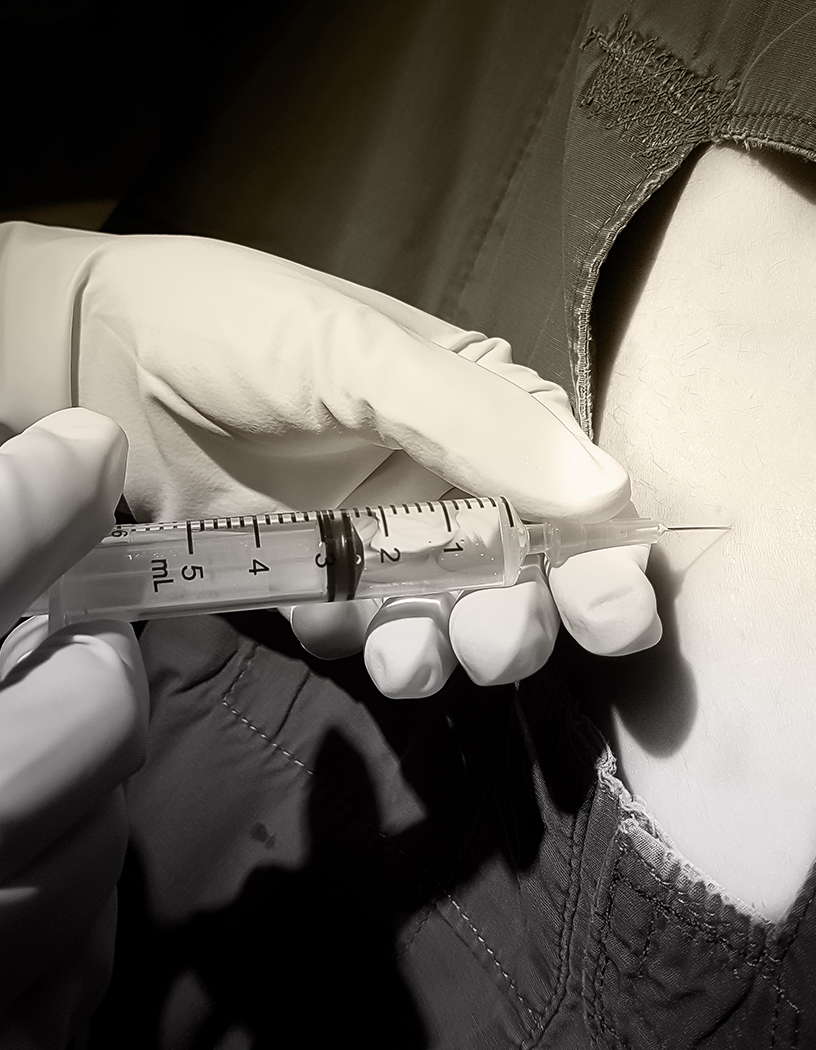
Award-Winning Medical Malpractice Attorneys
Doctor Negligence
Mistakes may occur but preventable medical errors made by physicians, nurses and other healthcare professionals in hospitals and other medical facilities have far reaching effects on patients – often forever.
Read More
Hospital Malpractice
Hundreds of thousands of people die nationwide in hospitals every year because of careless, yet preventable, medical mistakes made by doctors, nurses and other healthcare professionals.
Read More
Birth Injuries
When doctors and nurses fail to properly monitor, diagnose and treat fetal conditions during the birthing process, the result may be serious, life-altering injuries.
Read More
Cancer Misdiagnosis
Failure to diagnose or a misdiagnosis can turn a treatable tumor into untreatable cancer, resulting in premature and unnecessary death.
Read More
Prescription Drug Errors
If a facility is understaffed and/or the nurses are overworked, they can make a mistake with medications causing patients significant harm.
Read More

Andres, Berger & Tran To Represent You
Selected by their peers and clients as top lawyers in NJ, Andres, Berger & Tran have helped thousands of injured victims recover the money they need to pay their medical bills, support their families, and get compensated for their injuries.
Attorney Michael S. Berger is among the fewer than two percent of NJ attorneys certified by the Supreme Court of New Jersey as a Civil Trial Attorney. This is a designation granted to attorneys who are able to demonstrate sufficient levels of experience, education, knowledge, and skill in civil trial practice.
Attorney Michael S. Berger served as president of the New Jersey Association for Justice. As a fellow of the American College of Trial Lawyers, he has been selected to serve on New Jersey Supreme Court Committees for Ethics, Civil Practice, and Model Civil Jury Charges. He teaches trial advocacy as an adjunct professor of law at Drexel University Law School.
Firm
Named to The Best Lawyers in America© by Woodward/White Inc
Awarded an "AV" Peer Rating by Martindale-Hubbell© - The Highest Possible Rating
Listed as a Best Law Firm by US & World Report©
Michael Berger
Named Top Ten Super Lawyers© In New Jersey 2014, 2019, 2020
Disclaimer
No aspect of this advertisement has been approved by the Supreme Court of New Jersey.
New Jersey Medical Malpractice Attorneys
When Tragedy Strikes, You Deserve the Best Representation from a Top Rated New Jersey Medical Malpractice Lawyer
If you or someone close to you has been injured by medical negligence in Camden County, Gloucester County, Burlington County, or anywhere else in New Jersey, call a qualified South Jersey medical malpractice lawyer from our firm today for a free consultation about your case. The top-rated trial attorneys at our boutique firm – including Michael S. Berger (100% Medical Malpractice), Abraham Tran, and Karen Berger – fight tirelessly for victims of medical mishaps throughout New Jersey.
The Law Offices of Andres, Berger & Tran is located in Haddonfield, NJ, but we have become the go-to legal resource for clients all over the state. Colleagues and clients recognize our tenacity and commitment to each and every medical malpractice case we pursue.
Our Camden County law firm includes not only high-quality lawyers, but also experienced paralegals, nurses, and support staff who provide valuable assistance in your case preparation.
We consult with the most highly regarded and qualified experts in medical malpractice lawsuits, including forensic investigators, orthopedists, psychiatrists, other specialized physicians, reconstruction consultants, safety engineers, vocational and economic specialists, and others. We will carefully prepare your lawsuit for trial.
We interview all witnesses, examine all evidence, and scrutinize all medical reports to make sure that we have a winning case.
Next, we negotiate skillfully in an effort to reach a settlement on your behalf. When that’s not possible, we are ready for battle and we’ll fight tirelessly for you and your family from Cherry Hill, Voorhees, Marlton, and throughout Camden County and all of South Jersey.
Choose the experience of a trusted South Jersey medical malpractice lawyer at The Law Offices of Andres, Berger & Tran Contact us today and receive a free case evaluation from a trusted member of our legal team.
Meet The Team

Dedicated to Helping Injured People & Families Who Have Lost a Loved One
Of Trial ExperienceMulti-Million
Dollar Settlements For Their Clients
Featured Results








Areas We Serve
- Atlantic County
Absecon
- Atlantic City
Brigantine
Buena
Buena Vista Township
Egg Harbor City
Egg Harbor Township
Galloway
Hammonton
Linwood
Longport
Margate City
Mullica
Northfield
Pleasantville
Port Republic
Somers Point
Ventnor City
- Burlington County
Bass River
Beverly
Bordentown City
Bordentown Township
Burlington City
- Burlington Township
Chesterfield
- Cinnaminson
Delanco
- Delran
Eastampton
Edgewater Park
- Evesham
Fieldsboro
Florence
Hainesport
Lumberton
Mansfield
Maple Shade
- Marlton
Medford Lakes
- Medford Township
Moorestown
Mount Holly
- Mount Laurel
New Hanover
North Hanover
Palmyra
Pemberton Borough
- Pemberton Township
Riverside
Riverton
Shamong
Southampton
Springfield
Tabernacle
Washington Township
- Willingboro
- Camden County
Ashland
Audubon
Audubon Park
Barclay CDP
Barrington
Bellmawr
Berlin
Blackwood
Brookfield
Brooklawn
- Camden
- Cherry Hill
Chesilhurst
Clementon
- Collingswood
Echelon
Ellisburg
Gibbsboro
Glendora
Gloucester City
Golden Triangle
Greentree
Haddon Heights
Haddonfield
- Haddon Township
Hi-Nella
Kingston Estates
Laurel Springs
Lawnside
Lindenwold
Magnolia
Merchantville
Oaklyn
- Pennsauken
Pine Hill
Pine Valley
Runnemede
Somerdale
Springdale
Stratford
Tavistock
- Voorhees Township
Wood-Lynne
- Winslow Township
- Cape May County
Avalon
Cape May Point
- Cape May
Dennis Township
Lower Township
Middle Township
North Wildwood
- Ocean City
Sea Isle City
Stone Harbor
Upper Township
West Cape May
West Wildwood
Wildwood Crest
- Wildwood
Woodbine
- Cumberland County
Bridgeton
Cedarville
Fairton
Laurel Lake
Millville
Port Norris
Rosenhayn
Seabrook Farms
Shiloh
Vineland
- Gloucester County
- Gloucester Township
Beckett
Clayton
- Deptford
Gibbstown
- Glassboro
Mullica Hill
National Park
Newfield
Oak Valley
Paulsboro
Pitman
Richwood
Swedesboro
Turnersville
Victory Lakes
- Washington Township
Wenonah
Westville
Williamstown
Woodbury
Woodbury Heights
- Middlesex County
Carteret
Cranbury
Dunellen
East Brunswick
Edison
Helmetta
Highland Park
Jamesburg
Metuchen
Milltown
- Monroe Township
New Brunswick
North Brunswick
Old Bridge
Perth Amboy
Piscataway
Plainsboro Township
Sayreville
South Amboy
South Brunswick
South Plainfield
South River
Spotswood
Woodbridge Township
- Mercer County
- East Windsor
- Ewing Township
Groveville
- Hamilton Township
Hightstown
- Hopewell
Lawrenceville
- Lawrence Township
Mercerville
Pennington
- Princeton
Princeton Junction
Robbinsville
- Trenton
Twin Rivers
White Horse
Yardville
- Ocean County
Barnegat
Barnegat Light
Bay Head
Beach Haven
Beach Haven West
Beachwood
Cedar Glen Lakes
Cedar Glen West
Crestwood Village
Dover Beaches North
Dover Beaches South
Forked River
Harvey Cedars
Holiday Heights
Island Heights
Lakehurst
- Lakewood
Lavallette
Leisure Knoll
Leisure Village
Manahawkin
Mantoloking
Mystic Island
New Egypt
North Beach Haven
Ocean Acres
Ocean Gate
Pine Beach
Pine Lake Park
Pine Ridge at Crestwood
- Point Pleasant
Seaside Heights
Seaside Park
Ship Bottom
Silver Ridge
South Toms River
Surf City
Toms River
Tuckerton
Vista Center
Waretown
- Salem County
Alloway
Carneys Point
Elmer
Hancocks Bridge
Olivet
Pedricktown
Penns Grove
Pennsville
Quinton
Salem
Woodstown
- Somerset County
Bedminster
Bernards
Bernardsville
Bradley Gardens
Branchburg
Bridgewater
Bound Brook
Clyde
East Franklin
Far Hills
Franklin Center
- Franklin Township
Green Brook Township
Harlingen
Hillsborough Township
Manville
Millstone
Montgomery
North Plainfield
Pleasant Plains
Raritan
Rocky Hill
Somerville
South Bound Brook
Ten Mile Run
Watchburg
Warren
- Bucks County
Bristol
Brittany Farms
Chalfont
Churchville
Cornwells Heights
Croydon
Doylestown
Dublin
Eddington
Fairless Hills
Feasterville
Hulmeville
Ivyland
Langhorne
Langhorne Manor
Levittown
Milford Square
Morrisville
New Britain
New Hope
Newtown
Newtown Grant
Penndel
Perkasie
Plumsteadville
Quakertown
Richboro
Richlandtown
Riegelsville
Sellersville
Silverdale
Spinnerstown
Trevose
Trumbauersville
Tullytown
Village Shires
Warminster Heights
Woodbourne
Woodside
Yardley
- Montgomery County
Ambler
Ardmore
Audubon
Blue Bell
Bridgeport
Bryn Athyn
Bryn Mawr
Collegeville
Conshohocken
Eagleville
East Greenville
Evansburg
Flourtown
Fort Washington
Gilbertsville
Glenside
Green Lane
Halfway House
Harleysville
Hatboro
Hatfield
Jenkintown
King of Prussia
Kulpsville
Lansdale
Maple Glen
Montgomeryville
Narberth
Norristown
North Wales
Oreland
Penn Wynne
Pennsburg
Plymouth Meeting
Pottsgrove
Pottstown
Red Hill
Rockledge
Royersford
Sanatoga
Schwenksville
Skippack
Souderton
Spring House
Spring Mount
Stowe
Telford
Trappe
Trooper
West Conshohocken
Willow Grove
Woxall
Wyncote
Wyndmoor
- Philadelphia County
Bella Vista
Callowhill
Chinatown
East Passyunk
Fairmount
Fishtown
Graduate Hospital
Logan Square
Market East
Midtown Village
Northern Liberties
Old City
Pennsport
Powelton Village
Queen Village
Rittenhouse Square
Society Hill
Spring Garden
Spruce Hill and Cedar Park
University City
Washington Square West









